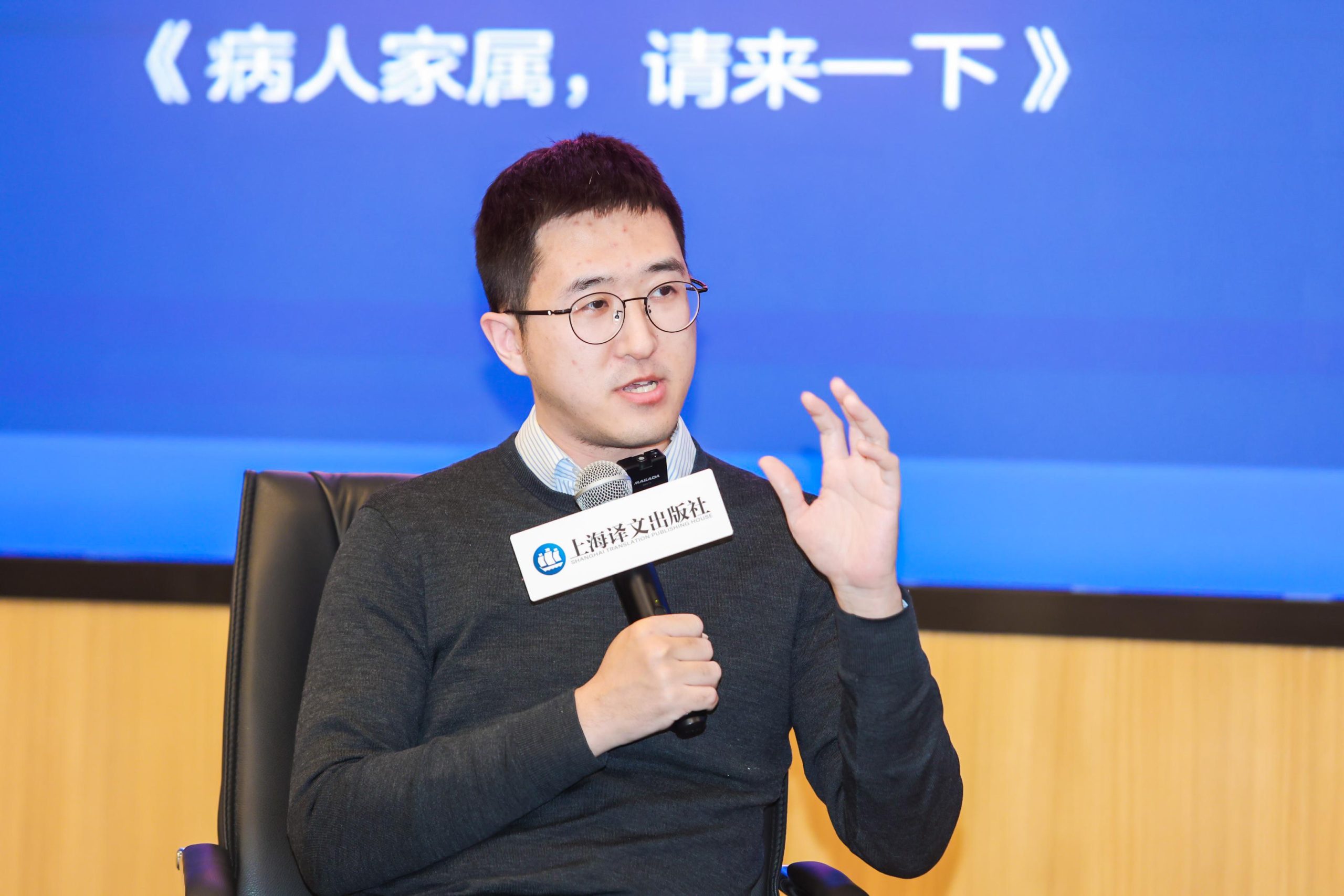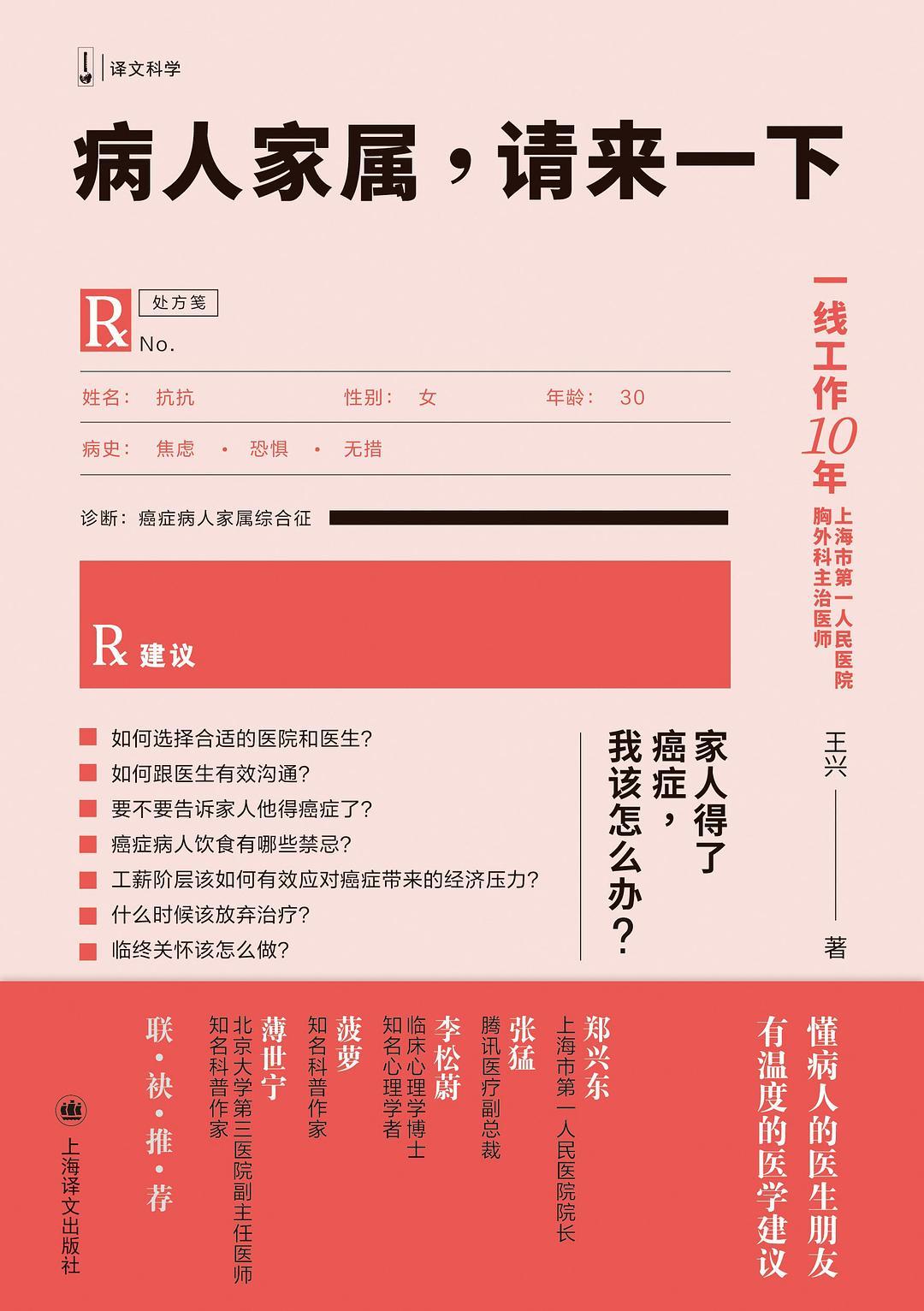Obviously, it’s just a bad stomach. Why does the doctor ask about the history of sexual life?
Obviously, my stomach is already very painful. Why did the doctor press it until we screamed?
Also, why do doctors always hold the stethoscope head by hand before auscultation, and let us curl our legs before pressing our stomachs?
……
Following the popular medical science "Family members of patients, please come" in 2021, Wang Xing, a doctor of oncology in Peking University and attending physician of thoracic surgery in Shanghai First People’s Hospital, will bring a new book "Doctor, what are you thinking" in June this year.
If "Family members of patients, please come" is written by him for the family members of cancer patients, "Doctor, what are you thinking" wants to drive the whole society to study medicine together. With this new work, Wang Xing hopes to help readers build medical thinking, reduce the communication cost between doctors and patients, and make medical treatment more effective.

Xing Wang
Queue for an hour and see a doctor for three minutes?
In life, many patients are very dissatisfied with the outpatient doctors: "Cherish words like gold, and after a few words, you will be ordered to leave the house."
Wang Xing understands the patient’s mood. In his junior year, he went to see a doctor because of his foot injury. As a result, the doctor said "nothing" without careful consultation or good examination. This experience once made him very confused.
But when Wang Xing became a doctor himself, he realized that outpatient doctors’ more responsibilities were to quickly judge whether patients were sick or not, to take medicine or surgery, and to be hospitalized-in short, to "screen".
"Under the current system, outpatient clinics are not designed to make everyone happy and satisfied. For most outpatient doctors, time is used to find problems, not to provide emotional value. " Wang Xing revealed to the The Paper reporter that in this book, he also thought about whether it is possible for future doctors to optimize the outpatient service in order to enhance communication and understanding between doctors and patients.
Medical consumption, the more the better?
Looking back at the doctor’s visit in junior year, Wang Xing recovered quickly without using any medicine, so he didn’t waste a penny.
"From this point of view, the doctor actually completed the task with high standards. I don’t want to say that doctors should be indifferent, but it has at least solved the doubts in my heart for many years, so that I can think about what is’ effective medical care’ from the perspective of doctors. "
Wang Xing told The Paper that at present, many treatments in society are actually ineffective, such as the use of health care drugs, and the disease anxiety caused by the Internet boom has also spawned many over-treatments. "For example, we have many nodules, lung nodules, thyroid nodules, breast nodules … Many people choose surgery immediately, but in fact, in most cases, they only need to observe first and do not need to take medicine."
He thought that the United States and Japan are exactly the opposite medical models. The United States tends to avoid patients’ medical consumption, while Japan conducts treatment as much as possible. "Almost everyone can understand the truth that a penny is worth a penny, but only one thing can’t be understood. This is life. In terms of medical care, no country, no organization or any medical model is perfect, but reflection can make all of us, including doctors and patients, calm down and think about where we can find’ effective medical care’ instead of’ expensive medical care’,’ wasted medical care’ and’ hypocritical medical care’. "
Anxiety may be more harmful than the disease itself.
Nowadays, in the face of diseases, many young people have begun to "worry in advance".
As a medical student, Wang Xing once had "medical student syndrome": when he brushed his teeth and bled, he felt that he was leukemia; Often constipated, he feels that he is intestinal cancer; When he learned hyperthyroidism, he felt that the disease was very consistent with his impatient temper.
"I have experienced it myself, so I understand everyone’s anxiety about the disease. When the body has symptoms, we can eliminate the disease by some means, but we should also pay attention to the degree and not enter the dead end of’ I can’t stand it if I don’t find out’. " Wang Xing said that patients’ anxiety caused by the disease may bring more physical harm than the disease itself.
This is also one of the motivations for him to write "Doctor, what are you thinking". He hopes that this book can make the public understand how doctors ask questions, check up and make a diagnosis, and let the public feel the doctor’s thinking mode and learn to think like a doctor. "Medical thinking is the shortest distance between ordinary people and doctors. Once ordinary people have more understanding of this way of thinking, panic and anxiety will be reduced and replaced by rational analysis and decision-making, thus achieving’ effective medical care’. "
